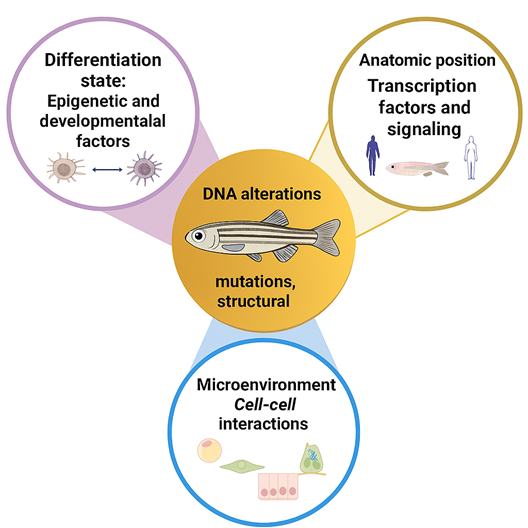Professor Richard White is a physician-scientist and Professor of Genetics. He leads a research group at the Ludwig Institute for Cancer Research in the Nuffield Department of Medicine . His lab investigates the origins and progression of melanoma, with a particular focus on how cancer cells acquire new identities—a process known as phenotypic plasticity.
Central to his research is the innovative use of the transparent zebrafish as a model organism, which allows real-time visualization of cancer development from the very first transformed cell. His work has revealed that the anatomic location of tumours and their capacity to spread are not solely dictated by DNA mutations, but also by epigenetic and environmental factors that influence cell behaviour. These findings have helped reframe our understanding of cancer initiation and metastasis.
His group’s landmark study, Baggiolini et al. (Science, 2021) demonstrated that the ability of a cell to initiate melanoma is governed by chromatin programs laid down during embryonic development. These programs define which cells are competent to respond to oncogenic mutations.
In another major advance, Weiss et al. (Nature, 2022) showed that the physical location of a melanocyte in the body determines its susceptibility to transformation. This study introduced the concept of ‘anatomic specificity’ in cancer initiation and emphasized the role of tissue context.
Before joining Oxford in 2022, Professor White was on faculty at Memorial Sloan Kettering Cancer Center and Cornell University Medical College in New York. He trained in medicine and cancer biology, holding both M.D. and Ph.D. degrees, and completed his postdoctoral work at Harvard Medical School. He has received numerous teaching, mentoring and research awards, including the Outstanding Investigator Award from the Society for Melanoma Research and the Cornell Mentor of the Year Award.
At Oxford, he contributes to both undergraduate and postgraduate teaching and serves as Director of Graduate Studies for Ludwig Cancer Research.

